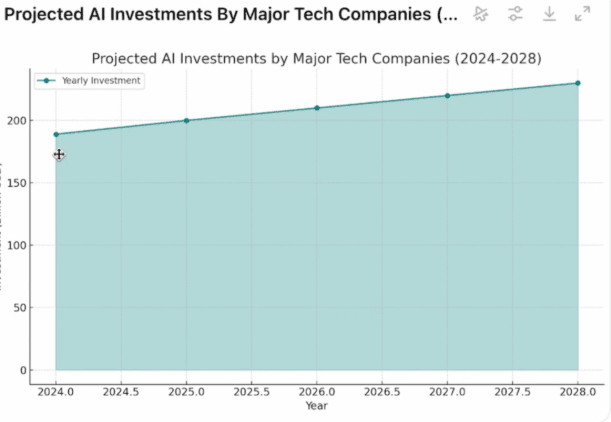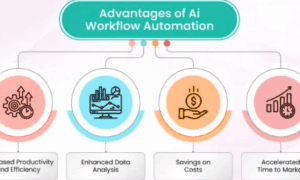AI isn’t replacing SaaS founders — it’s reshaping how they grow, compete, and scale.
Over the past decade, SaaS founders have mastered the art of building great products. They’ve learned to navigate ad platforms, refine funnels, and experiment with agencies. Yet even with strong traction and consistent revenue, many still feel stuck, caught between stability and scale.
It’s not because the product is weak or the market is too crowded. It’s because the growth engine behind most SaaS companies wasn’t built like a system. It was stitched together from outdated playbooks.
As we approach 2026, the landscape is shifting faster than ever. The companies that survive won’t be the ones spending more on ads. They’ll be the ones building intelligent, AI-driven acquisition infrastructures that learn, predict, and adapt in real time.
From Campaigns to Systems: The New SaaS Growth Model
Traditional SaaS marketing has relied heavily on ads, cold outbound, and lead magnets. But these tactics are reaching their limit. Outbound response rates are at record lows, ad costs are climbing, and user attention is harder to hold than ever.
The smartest SaaS founders are no longer asking, “How do I run better ads?” They’re asking, “How do I build a smarter growth engine?”
That’s where AI becomes the ultimate SaaS partner.
Modern SaaS leaders are designing full-stack AI marketing infrastructures, not just running campaigns. These systems connect every part of the customer journey:
- AI-powered intent tracking uncovers buyer needs before they’re expressed.
- Predictive ad algorithms automatically adjust budgets and creatives based on real-time performance.
- Behavioral retargeting changes messaging according to user interactions with your website.
- Sales call analyzers identify conversion hurdles and send insights back into the funnel.
- CRM automations personalize nurture flows and upsells based on actual user engagement.
The result is an engine that scales itself, a living, learning system that improves every day.
Why the Old Go-to-Market Strategy Is Failing
A few years ago, SaaS founders could rely on a traditional go-to-market strategy: ads → funnel → demo → sale. But 2025 changed the equation.
According to McKinsey’s State of AI in SaaS Report (2024), 87% of SaaS companies generating over $10M in ARR now use AI for customer acquisition, and 92% of high-growth SaaS startups are actively investing in AI-based marketing tools.
At the same time, only 24% of SaaS companies still rely solely on manual outbound or basic campaigns, and those are the ones struggling to scale beyond founder-led sales.
Why? Because attention is the new currency. Alphabet, Meta, Microsoft, and Amazon collectively invested nearly $189 billion in AI infrastructure in 2024, not for R&D but to keep users engaged and converting.
If your SaaS doesn’t have AI built into its growth system, you’re already competing at a disadvantage.
Scaling Your SaaS Through AI Intelligence
AI isn’t just speeding up processes, it’s changing how SaaS companies think about growth. Instead of chasing prospects, AI helps your system evolve to meet them where they are.
Imagine this:
- Your website learns which visitors are most likely to convert.
- Your outreach adapts based on behavioral data.
- Your ad spend optimizes itself daily.
- Your content personalizes itself around intent signals.
That’s the foundation of a scalable growth system, one that compounds data and performance over time.
And the impact is measurable. AI-driven acquisition frameworks have been shown to cut customer acquisition costs (CAC) by up to 50%, reduce lead-to-close times by over 60%, and double annual recurring revenue (ARR) within months for fast-growing SaaS brands.
Companies like HubSpot, Drift, and Gong have demonstrated how AI-driven sales and marketing systems outperform traditional funnels by personalizing every touchpoint at scale.
This isn’t about replacing teams or automating creativity. It’s about giving your SaaS team leverage, letting them focus on strategy, not spreadsheets.
From Funnels to Flywheels
The traditional funnel was built to generate leads. The AI flywheel is built to manufacture belief.
By using AI to analyze sales conversations, identify objections, and reframe messaging, SaaS marketers can now pre-educate prospects before they ever speak to sales.
Here’s how this looks in practice:
- Real buyer hesitations are mined from your calls.
- They’re turned into value-driven content (videos, frameworks, and case studies).
- That content is distributed through your funnel and ads to handle objections before the demo even happens.
For example, one SaaS company used AI-driven conversation analysis to extract the top three sales objections from its demos. By turning those insights into targeted YouTube videos and email sequences, it increased its demo-to-close rate by 37% in just eight weeks.
When done right, leads arrive pre-sold and pre-qualified. That shortens the sales cycle, increases show-up rates, and creates a self-improving loop where insights from every sales call fuel smarter marketing next time.
That’s how AI turns a funnel into a feedback engine.
The Human Edge of AI-Driven SaaS
The common fear is that AI will remove the “human touch” from SaaS marketing. But the opposite is happening.
AI is the best way for teams to know their customers like never before. It can analyze behavior patterns, engagement triggers, and emotional responses, making it easier for marketers to connect with customers through highly personalized messages at scale.
In this way, AI doesn’t replace authenticity. It amplifies it.
Founders who embrace this shift are no longer just managing businesses, they’re building adaptive ecosystems that run smarter every day.
Final Remarks
AI in SaaS has moved far beyond the buzz, it’s now the backbone of sustainable growth.
The founders who treat it as a long-term partner, not a passing tool, will shape the next wave of innovation.
By 2026, success won’t depend on who spends more money but on who builds the smartest, self-learning systems. The future of SaaS isn’t about having the best product anymore, it’s about having the most intelligent thinking behind it.
Those who embrace AI early won’t just survive the shift, they’ll define it.



































